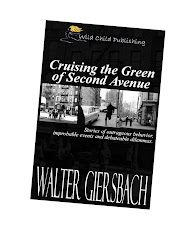It started with Spanish in the 9th
grade in Southern California. It seemed
easiest and a large percentage of the kids were Latino — except they called
themselves Pachucos, wore pegged
pants, and made believe they were Mexican hoodlums. Spanish class was a piece of cake with an
easy A on my report card.
But our family moved to Jersey the
next year and I signed up for a second, then a third year of Spanish. Playing to the grade point I also enrolled in
a first and then a second year of French.
The words were all pretty similar; only the accent was different.
I managed to graduate and my dad
introduced me to a summer job at a church-related work camp in Yuquiyu, Puerto
Rico. I bought my own machete for about
two dollars and was ready to turn second-growth jungle into future farm
land. It was great meeting Puertoriqueños — and Yankees — my
age. But when I’d ask a simple question,
like “How far is the beach from here?” they were mystified. And I realized my Castilian pronunciation
(with Jersey accent) was totally alien in Puerto Rico.
I let the languages go in college,
except for a disastrous year wrapping my tongue around German. I had no genetic advantage being half
German. Confronted four years later with
military conscription, I beat the system by enlisting; I traded an extra year of service to avoid going to Vietnam. Along the way, I was given a language test. That turned out to be nothing more than Esperanto,
an artificial language created as
an international medium of communication based on European languages. Not a problem, except that period had a high
cutoff score so the Army sent me in a different direction.
Well, I thought, getting off the
plane in Korea, maybe I could learn something. I did.
The little kids shouted at our platoon, “[expletive] you, G.I.”
Meeting local ladies in a bar, “I’d ask, would you like to see a
movie?” A sweet lady named Pyongtaek Peggy, would answer, “Machts nichts, GI.” Machts nichts? “What are you saying?” “Is your language, GI. Not mine.”
The military had created one world
that spoke a hodgepodge of Japanese, Vietnamese, Chinese. English and
German. After a year, I moved on to
Taiwan, the Republic of China, because I couldn’t survive in America on my corporal’s
pay. I loved Taiwan and ended up
marrying a woman who was raised speaking the Hakka dialect, grew up speaking
Taiwanese, remembered a bit of Japanese from the wartime occupation, learned to
speak Mandarin after 1949, and finally English.
On our first trip to Quebec, Canada,
years later, she whispered, “How do you say ‘How are you?’ in French?” For the rest of our vacation, she asked
everyone she met, “Comment-allez vous?” The Canadians loved her, and so did I.



No comments:
Post a Comment